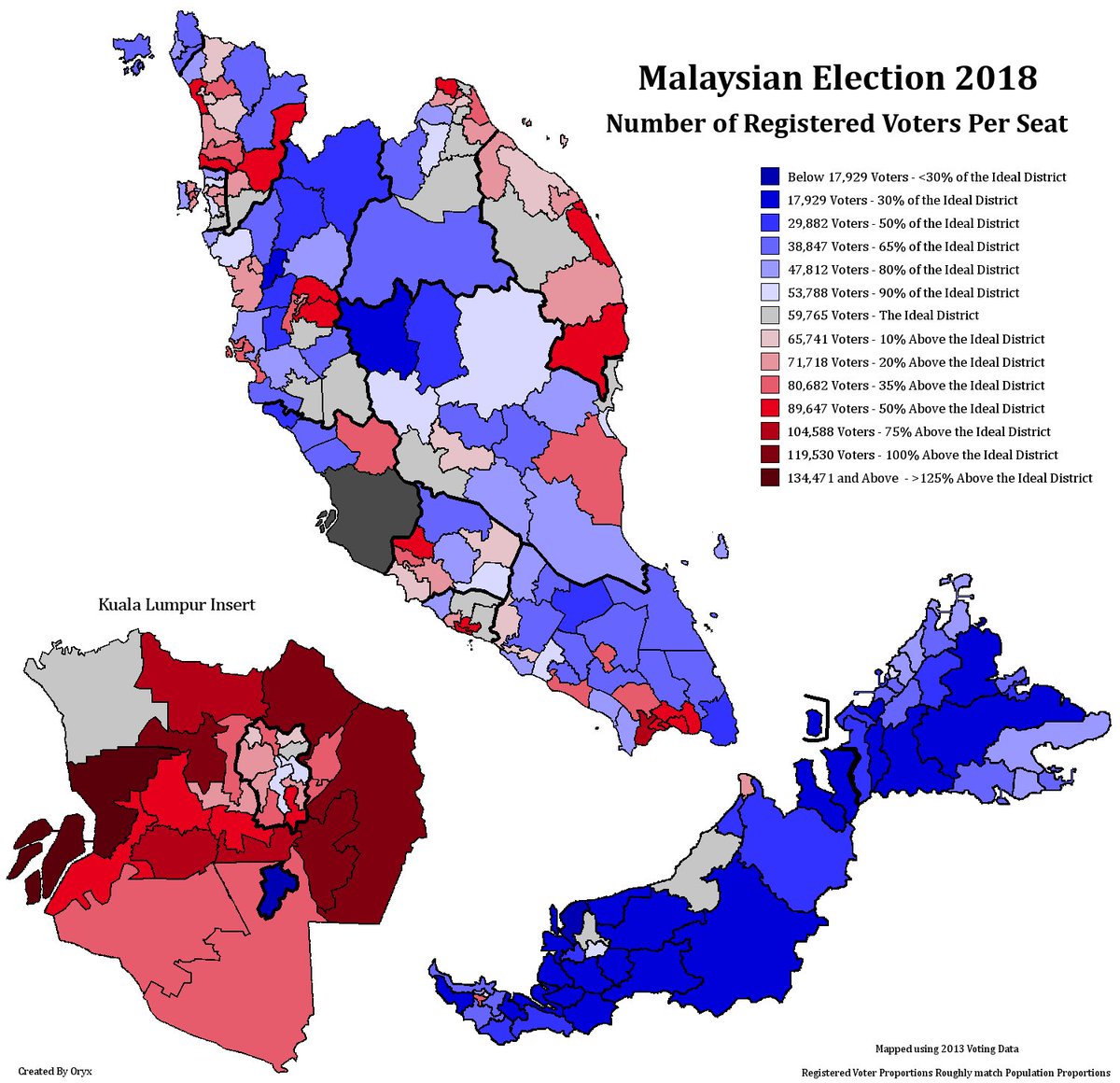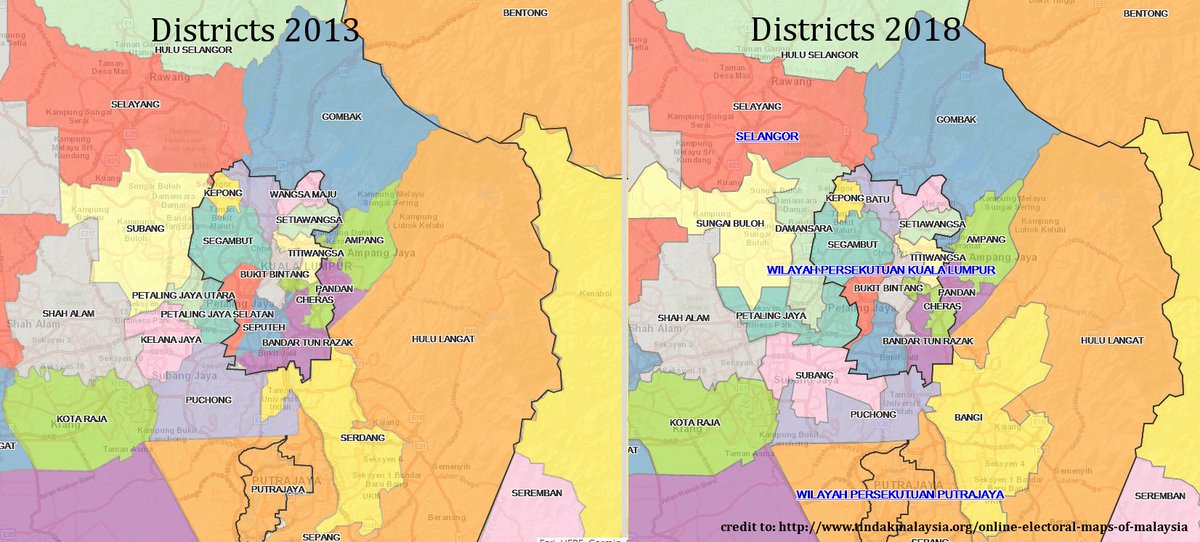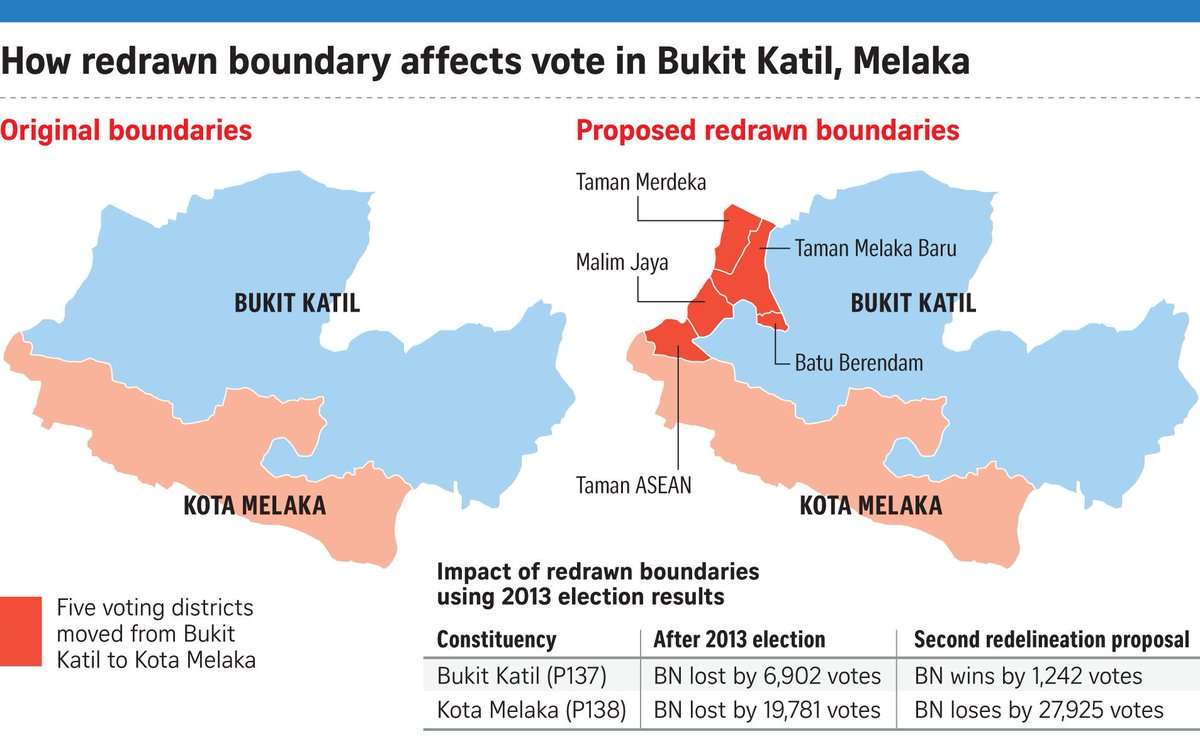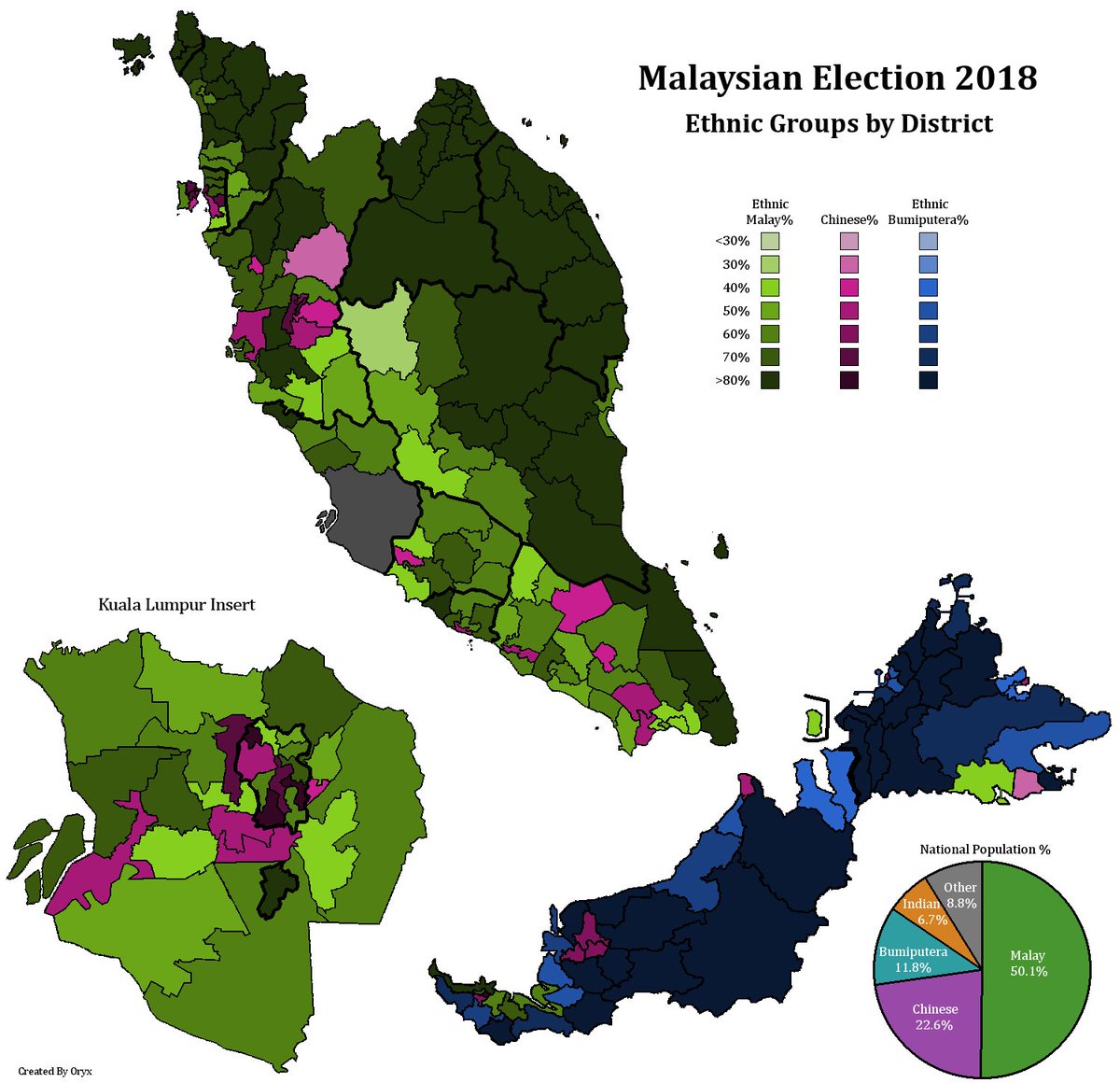On Wednesday Malaysian voters for the first time ever elected a ruling Coalition that was not Barisan Nasional. The Pakatan Harapan + Warisan Sabah Coalition flipped the PRU13 seat totals, winning 122/123 seats depending on independents. /1 of analysis #ElectionTwitter 

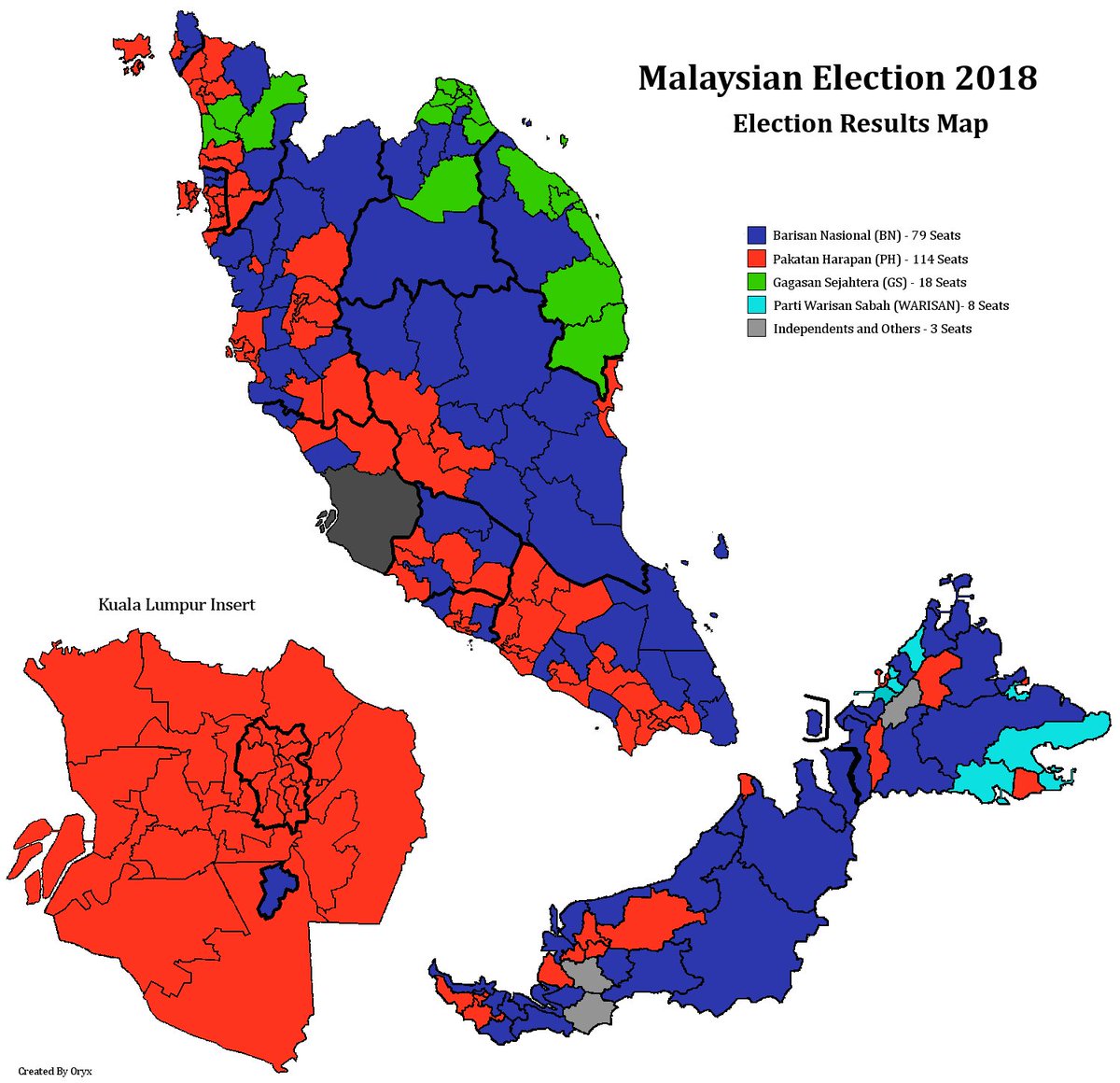
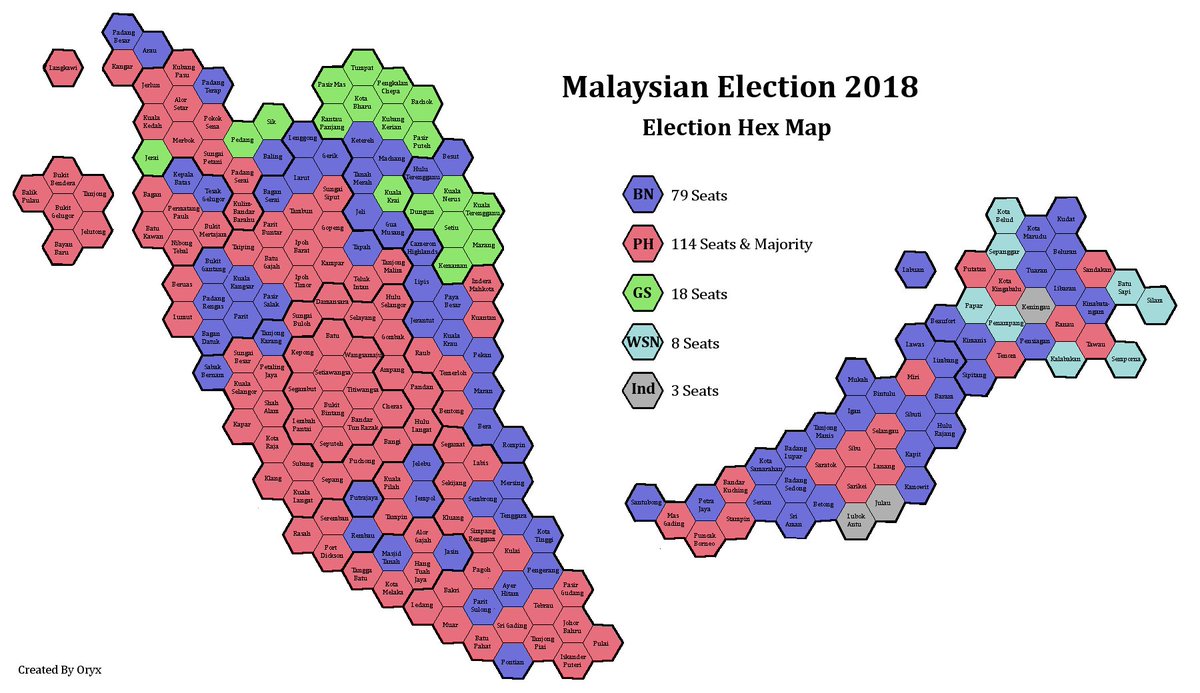
Turnout was an important factor in many analyses - with the assumption being the closer to 85% it got, the better PH's chances. The figure was originally, 76%, but was adjusted up today to 82%, ruining my scale. Turnout was correlated positively with PH support. /2 
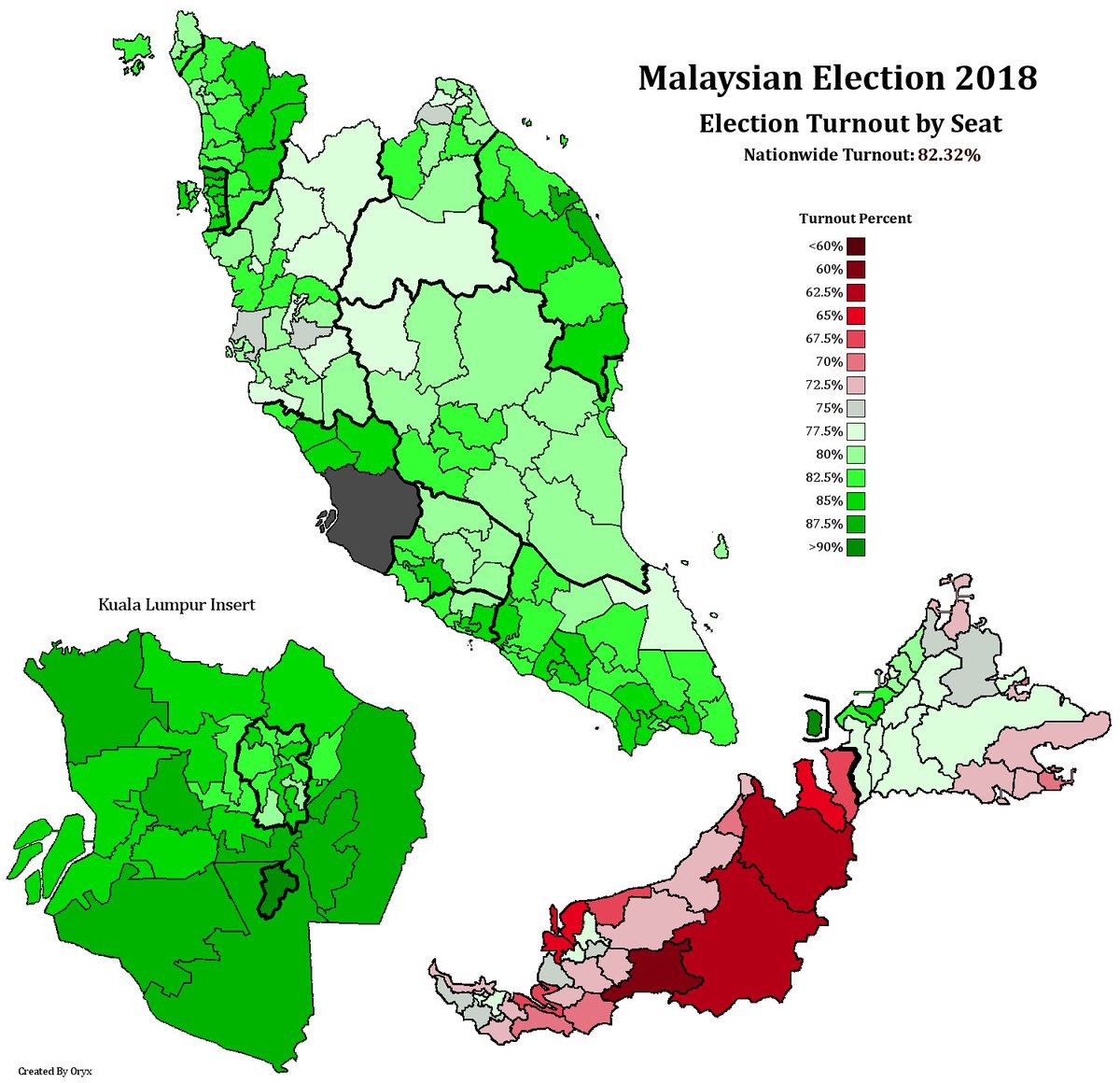
I said there were four key factors in this election - so let us take a look at them. 1 - How would the GS/PAS vote split? Well, it was largely concentrated in strongholds. In the northern swing areas though, it was a 3-way race, and they spoiled BN in Kedah, and PH in Perak. /3 
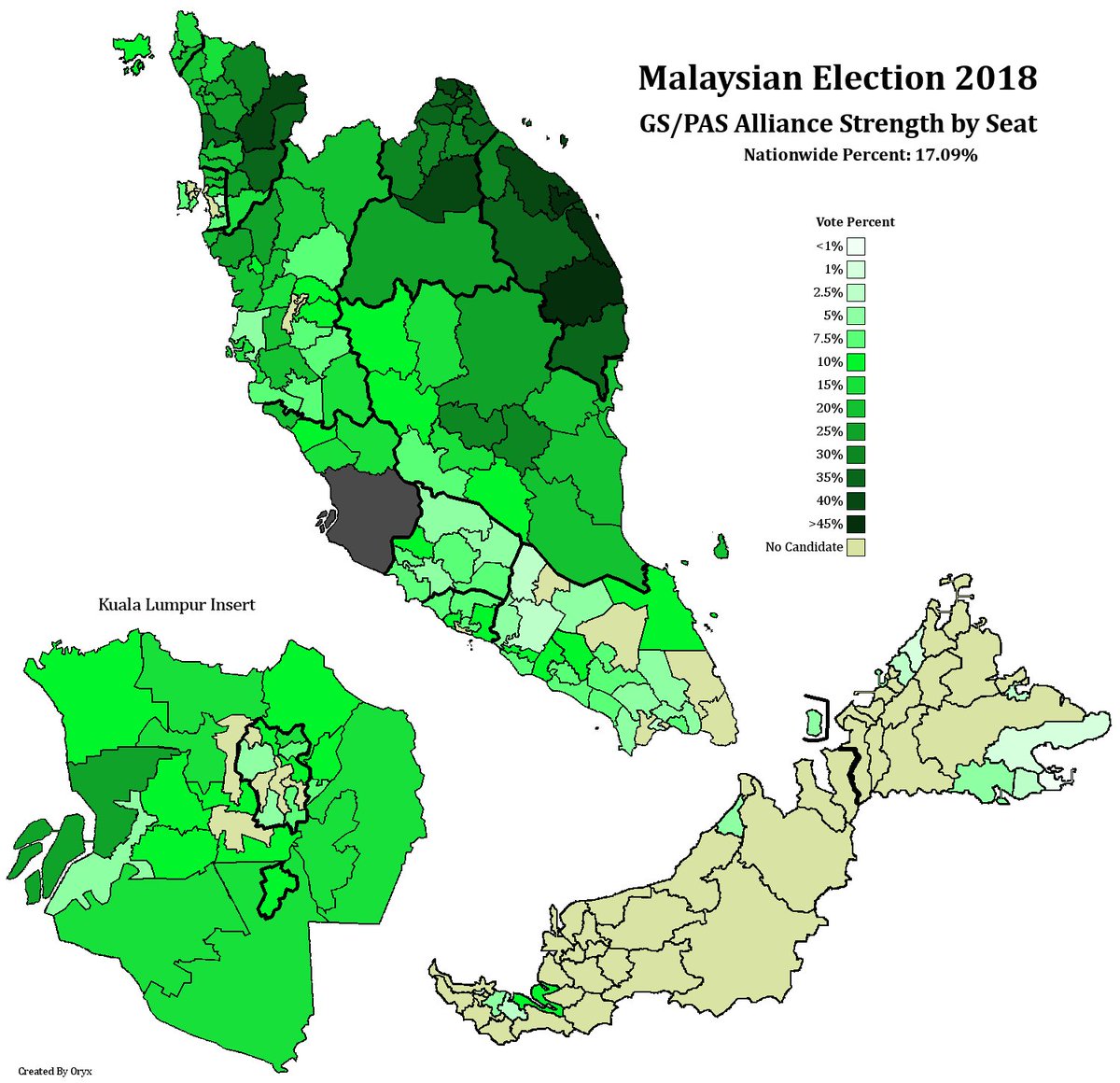
*Edit, their nationwide vote share was adjusted downwards to 13.67% yesterday, I forgot to update that. /4
2 - How would the swing states go? 3 - How would gerrymandering in Selangor affect results? The answer to those questions are - largely for PH and not at all. The wave was high enough to ignore the new lines. PAS/GS however definitely cut the PH vote in Perak. /5 

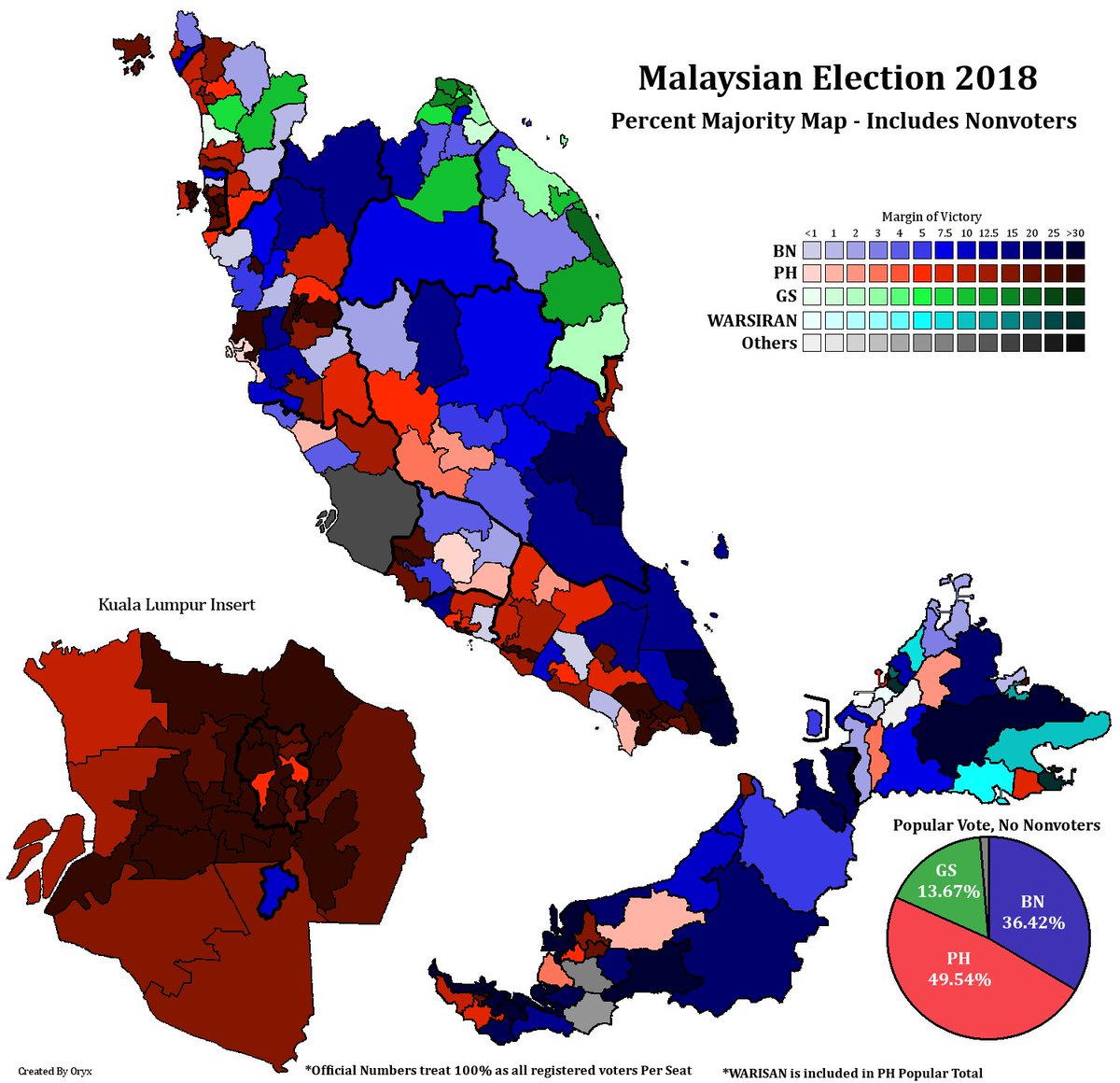
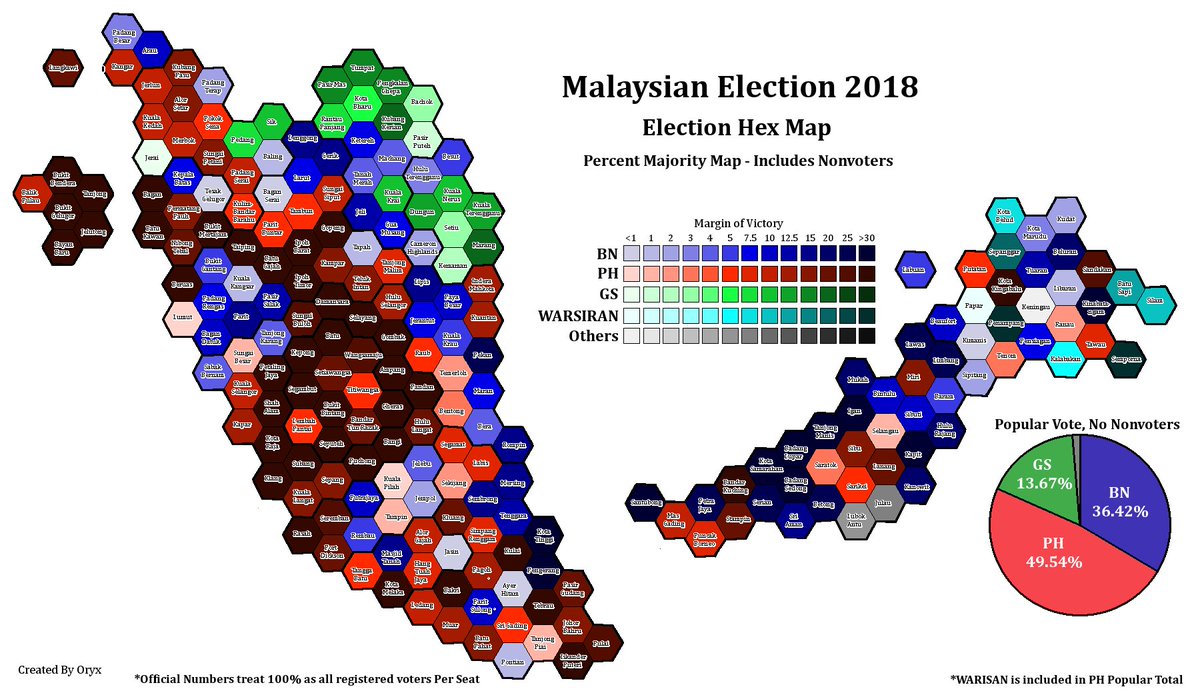
4 - How would Sabah vote with all the new regional tickets? Well it swung hard away from BN, with PH+WARISAN having a majority in Sabah, and making gains in Sarawak. The national swing was largely away from BN, except in those areas affected by PAS leaving the PH/PK ticket. /6 
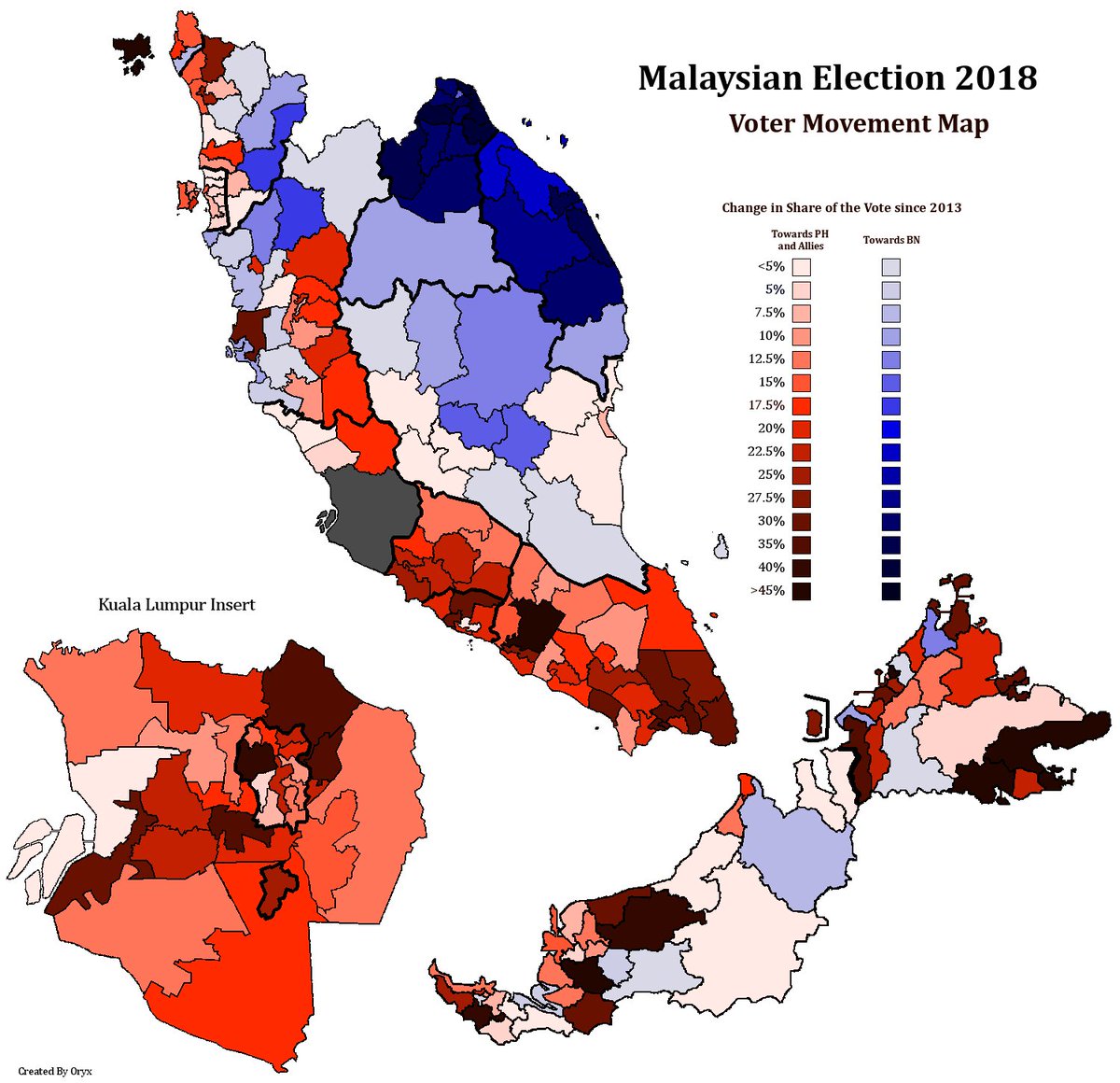
PAS/GS's single biggest contribution to this election might have been them leaving the PK/PH ticket and then speculating about a BN partnership. This message allowed many christian (red cath, blue prot) tribal areas to vote for PH, since they were now the non-Islamist party. /7 
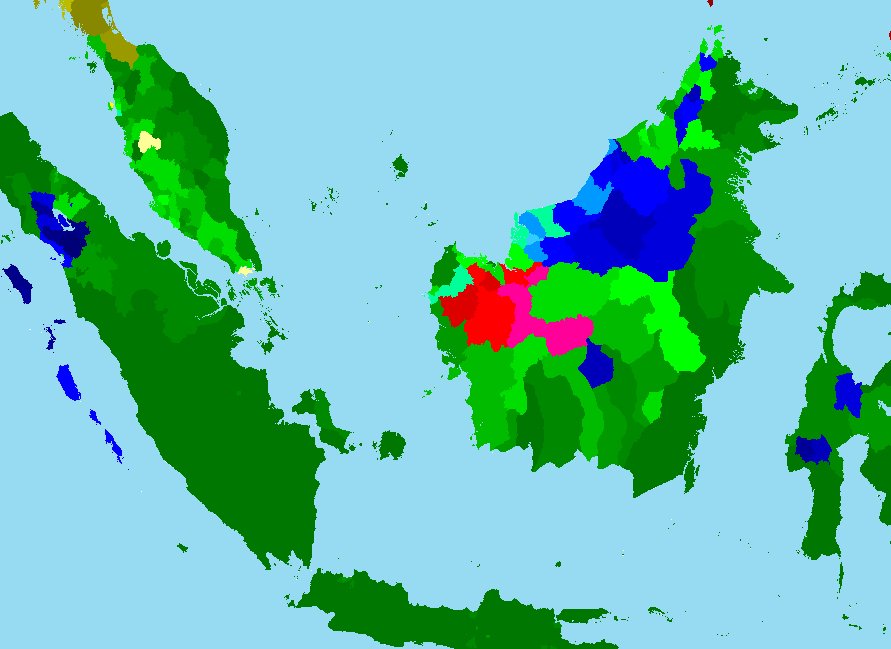
Credit to alternatehistory.com/forum/threads/… for the last pic. /8
Finally, a map of all seat gains - which were mainly towards PH in all seats: rural, urban, overpopulated, underpopulated, etc. So, did I make a mistake saying PH had the same chance as Trump - 30%? Perhaps 40% might have been justified, but BN held all the cards and lost. /9 

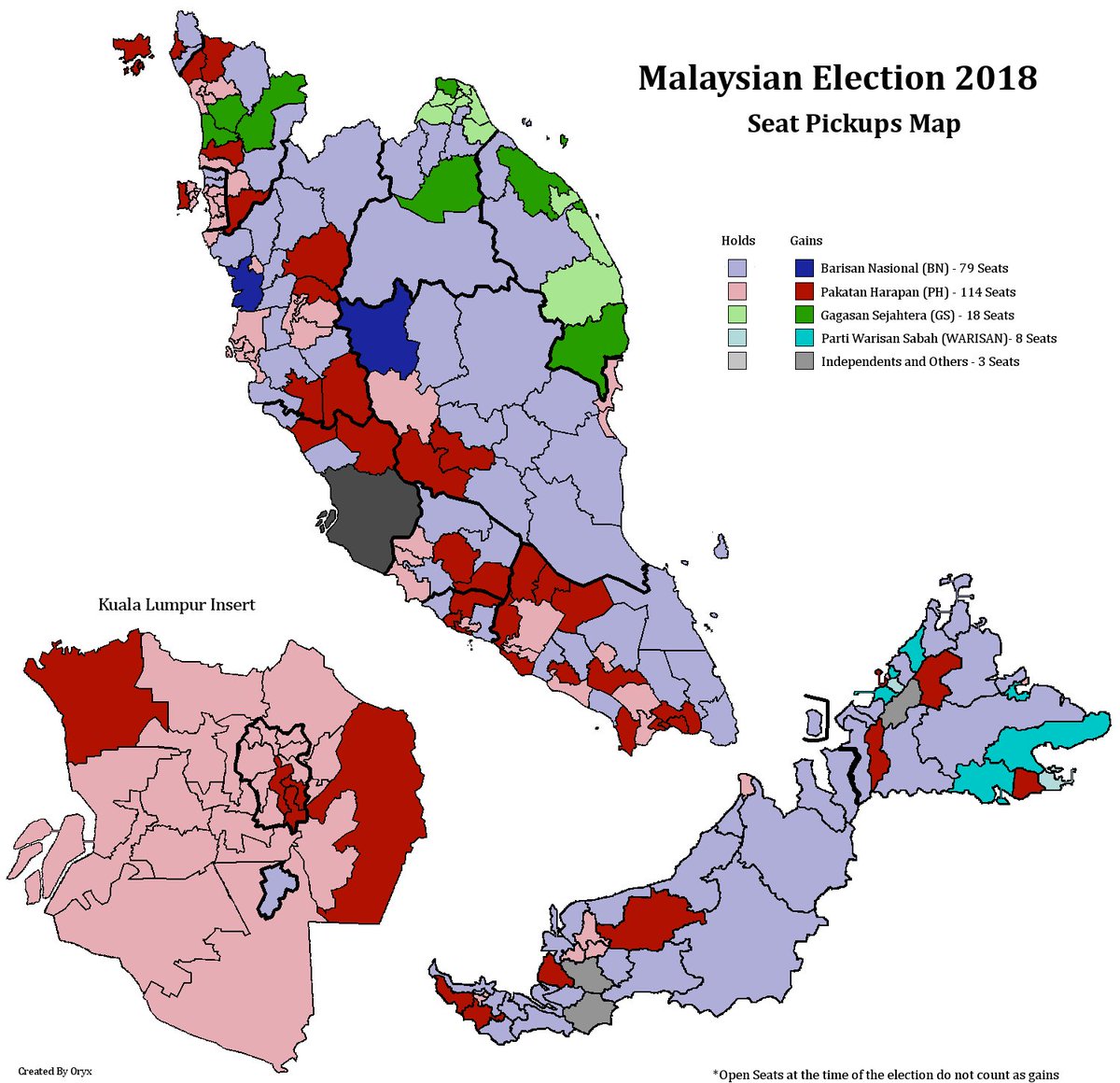
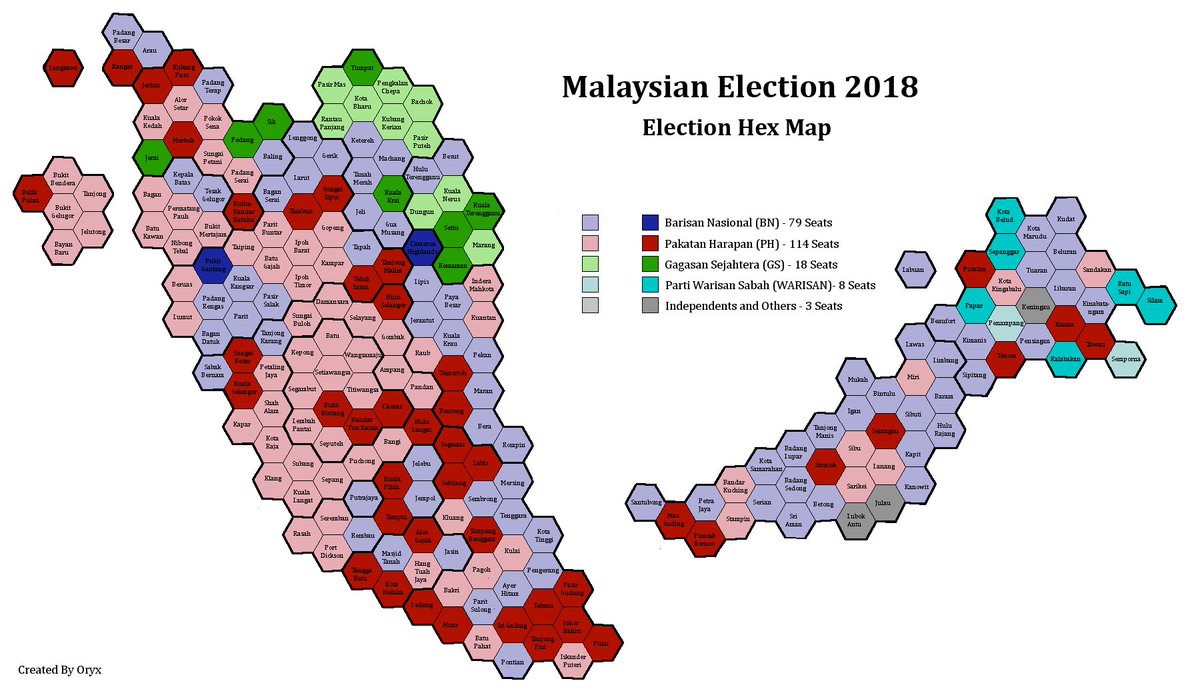
(Note, this is now the bonus editorial) Unfortunately for PH, the comparison that many will now make is to 2009 in Japan. The LDP was ousted for the first time by DP due to corruption/economic malaise, only to see an LDP return in 2013. This is an unfair comparison. /10 or end 

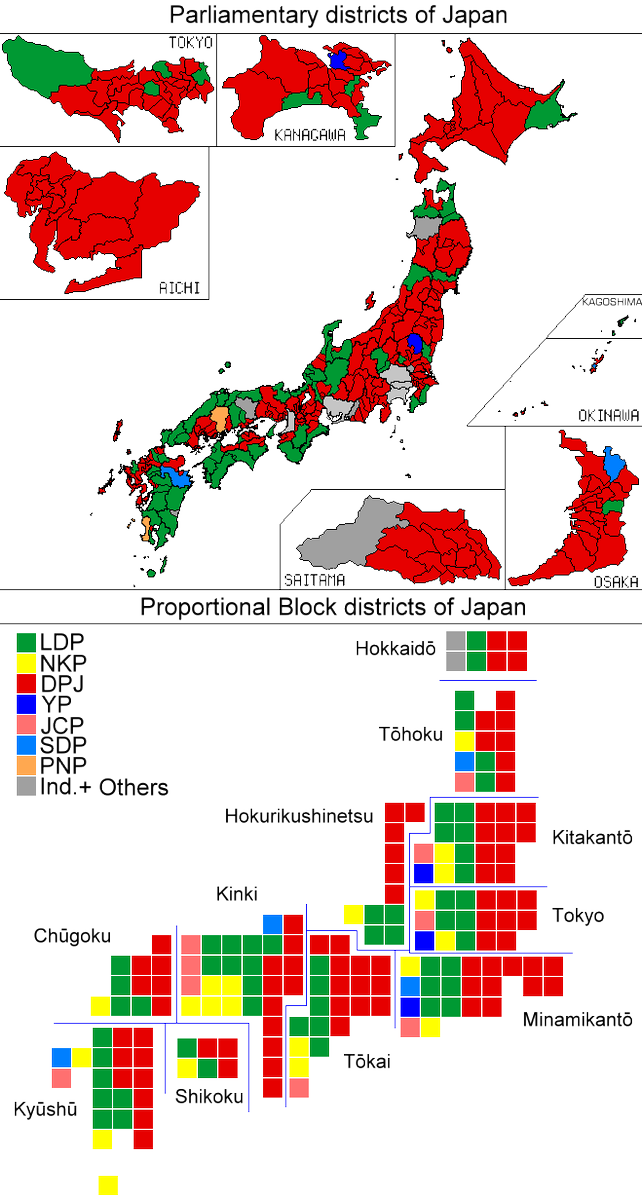
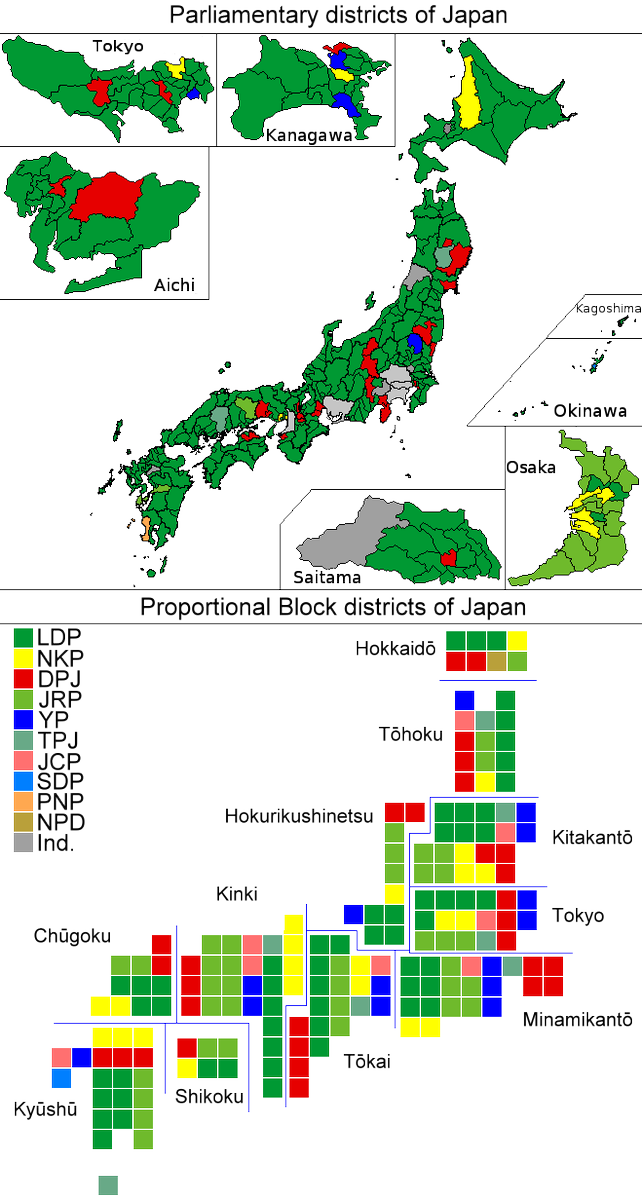
Credit to Wikipedia for those last two images /bonus 11
The main reason why is that the DP in Japan has no natural base or constituency, and mainly wins based on candidate quality. Therefore they mainly governed as LDP-lite, and could therefore be easily tossed aside. Didn't help that many DP candidates were recent LDPers. /12
PH or its successor on the other hand has clear proposals (anti-PRC, electoral reform, scrap the VAT tax, eliminating affirmative action) and a loyal urban/(ironically)Chinese base that has been fostering loyal opposition candidates for a long time. /13
So while the DP in japan was just a blip on the electoral radar, I suspect the PH or their successor coalition will be around and fighting in elections for many years to come. /end
• • •
Missing some Tweet in this thread? You can try to
force a refresh


